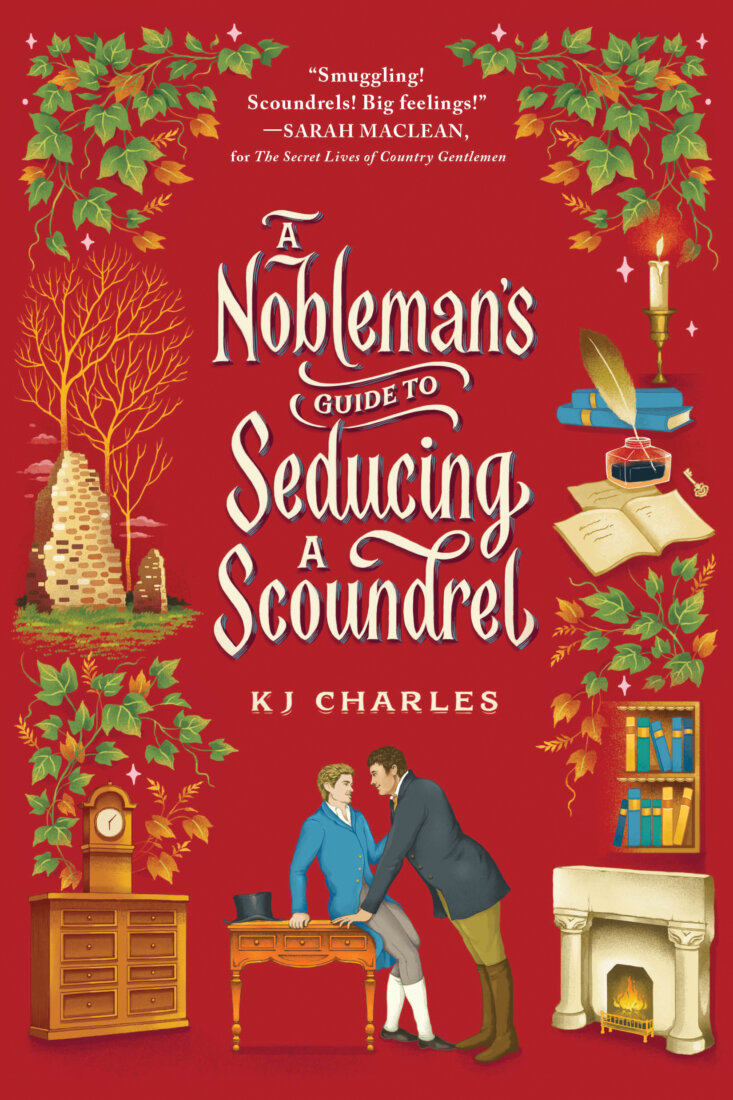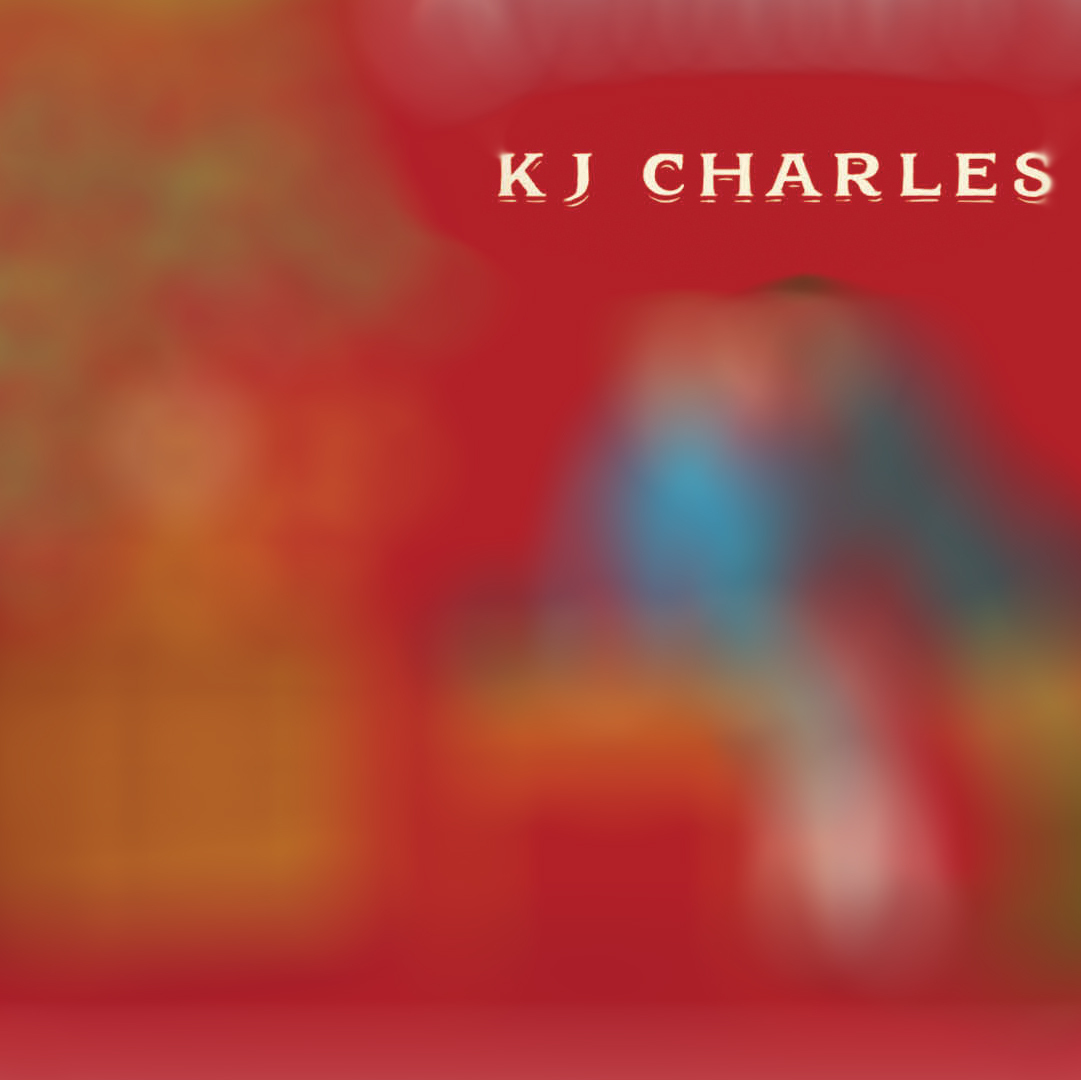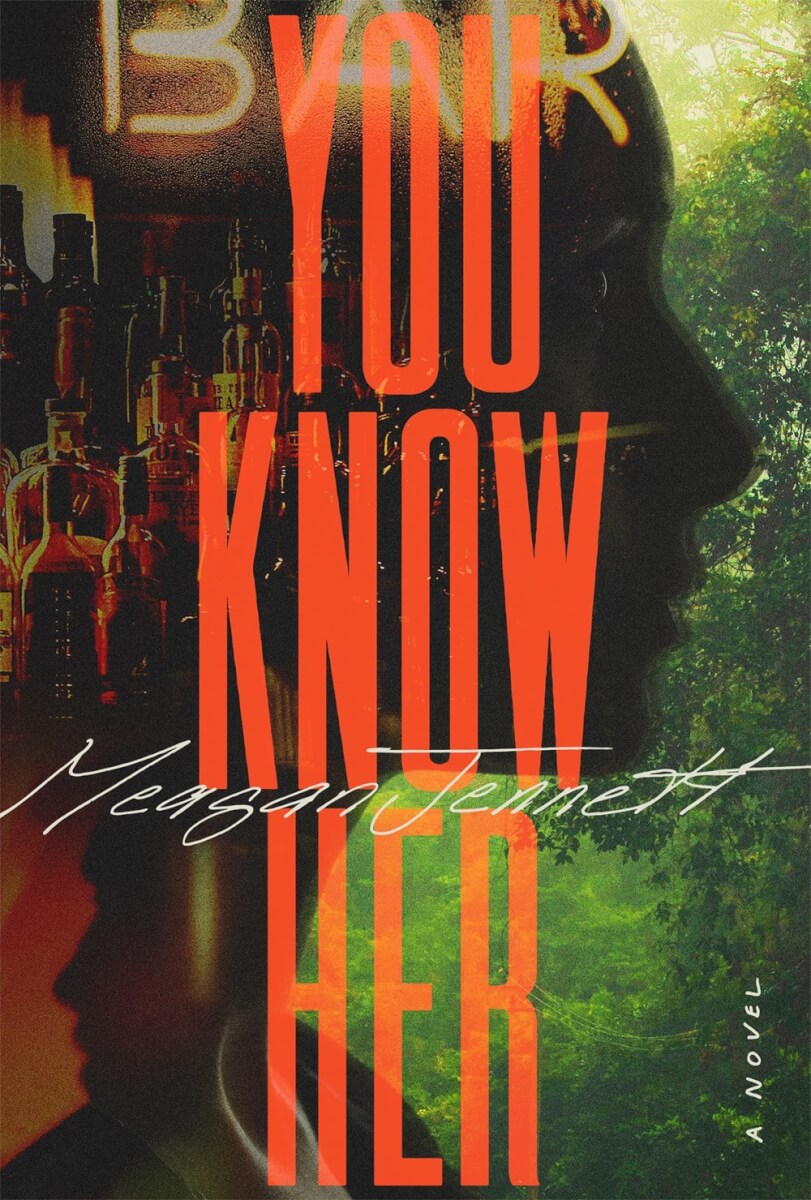A self-published phenomenon and longtime fan favorite, romance author KJ Charles returned to traditional publishing this spring with The Secret Lives of Country Gentlemen. The first installment in her Doomsday Books duology, Secret Lives introduced readers to the dangerous and exciting world of Romney Marsh, a stretch of Kentish coastline that’s home to a family of bold smugglers. A Nobleman’s Guide to Seducing a Scoundrel is set 13 years later, and follows Luke Doomsday, a scion of the smuggling clan who unexpectedly partners with Rufus d’Aumesty, the new local lord.
A Nobleman’s Guide to Seducing a Scoundrel will be available on shelves at libraries and bookstores everywhere on September 19, 2023. In the meantime, we’re thrilled to reveal its marvelous cover, which was illustrated by Jyotirmayee Patra. And read on for a Q&A with KJ Charles!

What input did you have on the individual details and the overall design for the covers of this series? What are your favorite aspects of the Nobleman’s Guide to Seducing a Scoundrel‘s jacket, specifically?
The publisher was great with consultation. They produced the terrific concept and then we talked about the various elements at sketch stage (appropriate plants and creatures for book one, house details for book two) to make sure they fitted with the book and mood and era, and I sent photo references where necessary. For both books, we paid a lot of attention to the pose of the main characters: It was really important to me to have a sense of romantic interaction so it absolutely looked like a queer romance. I love the way that Scoundrel matches Country Gentlemen, and how it somehow has an indoor, claustrophobic, nighttime feel where Country Gentlemen is very clearly outside.
There is a 13-year time jump between The Secret Lives of Country Gentlemen and A Nobleman’s Guide to Seducing a Scoundrel. Was that always the plan for the duology, or did you realize this was the direction the series was taking while writing Secret Lives? As a writer, what was intriguing and exciting about the time jump?
It was always the plan! I really wanted to dig into the knock-on effects of the events of book one on Luke, who is only 13 in the first book and has a pretty rough time with some substantial physical and mental trauma to handle. A lot of book two is about the consequences of book one—how those events affected not just Luke, but Gareth and the Doomsdays, the family dynamics and the resolution of the suspense plot. Also, of course, we’re going from a time of war and quite a high level of lawlessness and smuggling, to one of peace in which everything seems to be a lot more civilized. The Marsh has a different mood in book two; it’s calmed down a great deal.
Why did you pick the 1820s for the setting of A Nobleman’s Guide?
Honestly it was picked for me: I needed to place book one around 1810 for reasons to do with the plot, and I needed Luke to be mid-20s in book two to give him time to acquire the work and life experience he needed, while still being young enough to be stupid. I also wanted enough time to have passed that the economy was in a slightly better place than immediately post-war. I’ve already done a few books set around this time so the reading/research/feel were at my fingertips, and Scoundrel deliberately has quite a restricted setting as it takes place mostly within Stone Manor (it’s the classic gothic “big old house with horrendous family”), which does make things easier.
Both of the romances in the Doomsday Books feature a character that unexpectedly inherits an aristocratic title. What’s compelling about that dynamic for you? Why do you think it’s such a perennial plot in historical romance?
Well, it’s a great way of giving your character a ton of privilege without the tiresome personality side effects of them being brought up in that privilege! Which is to say, you can have a character who’s a lot more appealing to the modern reader without having to explain why he isn’t a spoiled entitled jerk.
I chose to have them both be inheritance books because I wanted to make a direct comparison of the situations. In book one, Gareth’s title is pretty meaningless: He’s a baronet, the least important and most numerous of inherited titles, his family is tiny and distant, and he’s not a big landowner or particularly well-off. Mostly, the title makes him rather more obvious to other people than he’d like to be, when he just wants to potter round the Marsh with Joss looking for beetles. Whereas in book two, Rufus inherits a very old earldom that does in fact give him a lot of power, but which also comes with a huge responsibility he can’t manage at first, and a massive burden of family pride he doesn’t share. Gareth has to make things work despite his title; Rufus has to make them work with his title.
Where do Rufus and Luke rank on the KJ Charles Character Scale, with 1 being “Cozy Cinnamon Roll Who Has Never Hurt a Fly” and 10 being “The Literal Devil—But Sexy”?
Rufus is a 3. He’s loud and shouty with a temper, and can be ruthless when he has to, but he’s got a very kind heart, he forgives quickly and he thinks hard about doing the right thing. Luke is . . . Luke is a Doomsday. He holds grudges forever, he’s manipulative and a shameless liar and frankly a git, and I don’t know how much he actually changes, rather than deciding to use his powers for good (and by “good,” I mean “Rufus”). He is also badly damaged by the events of book one, so deserves a bit more understanding than some other main characters of mine that I could mention, but I’d give him a solid 8: Natural Disaster. (I am really looking forward to seeing how people react to some of his more extreme decisions, ahaha.)









































